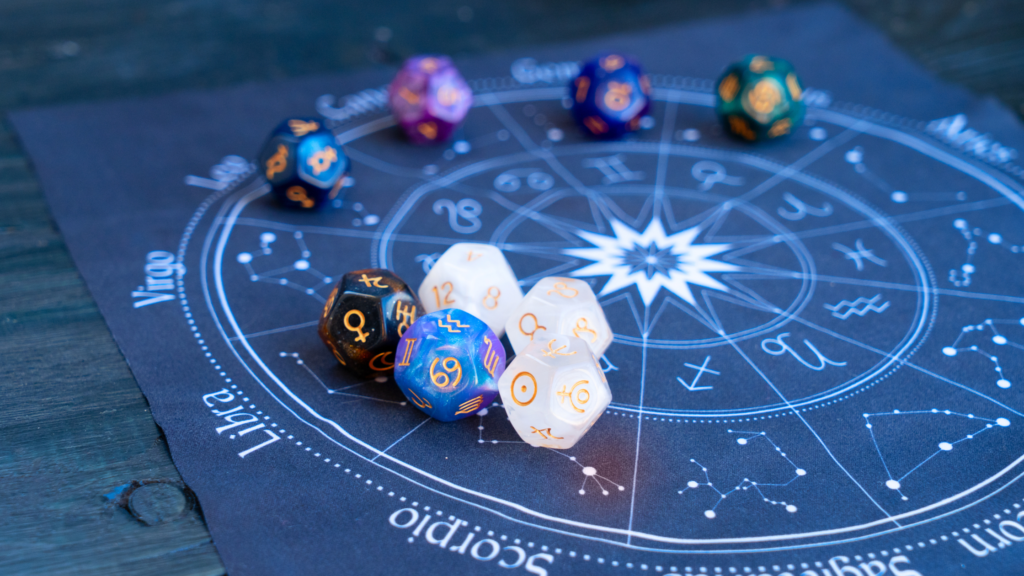For centuries, humanity has gazed up at the night sky, finding patterns, meaning, and guidance in the stars. This fascination with the cosmos gave birth to astrology, an ancient practice that seeks to understand the connection between celestial movements and human experiences. Whether you view astrology as a science, a spiritual tool, or a cultural phenomenon, its impact on human civilization is undeniable.
This blog will take you on a journey through the history and fundamental principles of astrology, explore its modern relevance, and delve into how this cosmic language can provide valuable insights into your personality, relationships, and life path. Whether you are a skeptic or a believer, astrology offers a fascinating lens through which to view the universe and our place within it.

A Brief History of Astrology
Astrology has its roots in ancient civilizations, with early records of astrological practices dating back to Babylon around the 2nd millennium BCE. The Babylonians were among the first to develop a system of astrology, focusing on the positions of the planets and stars in relation to earthly events. This early form of astrology eventually spread to Egypt, Greece, and Rome, where it evolved and integrated with the cultural and spiritual beliefs of these societies.
In ancient Greece, astrology became more sophisticated, with philosophers like Ptolemy and Plato contributing to its development. Ptolemy’s work, Tetrabiblos, became a foundational text for Western astrology, shaping the practice for centuries to come. The Greeks viewed astrology as a way to understand the divine order of the cosmos and its influence on human affairs.
During the Middle Ages, astrology was intertwined with astronomy and was studied by scholars and scientists alike. It was seen as a legitimate way to predict natural events, such as eclipses and weather patterns, as well as to gain insight into human behavior. However, with the rise of modern science and the separation of astrology from astronomy, astrology gradually shifted from a scientific pursuit to a mystical practice.
Today, astrology remains a popular and widely practiced form of divination, with millions of people around the world consulting their horoscopes for guidance and insight. Despite skepticism from the scientific community, astrology continues to resonate with those who seek a deeper connection to the universe and a greater understanding of themselves.

The Fundamental Principles of Astrology
At its core, astrology is based on the belief that the positions and movements of celestial bodies—the planets, the sun, the moon, and the stars—can influence human life and events on Earth. Astrology operates on the principle that the cosmos and human existence are interconnected, and by studying the heavens, we can gain insights into our own lives.
Astrology is built on several key components:
1. The Zodiac
The zodiac is a circle of twelve 30-degree divisions of celestial longitude that are centered upon the ecliptic—the apparent path of the sun across the sky over the course of a year. Each of these divisions is associated with a constellation and a corresponding astrological sign: Aries, Taurus, Gemini, Cancer, Leo, Virgo, Libra, Scorpio, Sagittarius, Capricorn, Aquarius, and Pisces.
Your sun sign, also known as your zodiac sign, is determined by the position of the sun at the time of your birth. It is often the most well-known aspect of astrology and is associated with your core personality traits, strengths, and challenges.
2. Planets and Their Influence
In astrology, the planets are considered powerful influencers of human life. Each planet is associated with specific energies and aspects of existence. For example:
- The Sun: Represents the self, identity, and ego.
- The Moon: Governs emotions, instincts, and the subconscious mind.
- Mercury: Rules communication, intellect, and reasoning.
- Venus: Influences love, beauty, and relationships.
- Mars: Represents action, desire, and aggression.
- Jupiter: Governs expansion, growth, and good fortune.
- Saturn: Rules discipline, structure, and responsibility.
- Uranus: Represents innovation, rebellion, and change.
- Neptune: Governs dreams, spirituality, and intuition.
- Pluto: Represents transformation, power, and regeneration.
The positions of these planets at the time of your birth, as well as their relationships to one another (known as aspects), create a unique astrological profile, or birth chart, that offers a deeper understanding of your personality and life experiences.
3. Houses and Their Meanings
In addition to the zodiac signs and planets, astrology also uses houses to divide the birth chart into twelve sections. Each house represents a different area of life, such as relationships, career, health, and home. The planets’ positions in these houses further refine the interpretation of an individual’s chart, providing specific insights into how different aspects of life are influenced by the cosmos.
For example:
- 1st House: Represents the self and physical appearance.
- 2nd House: Governs finances, possessions, and values.
- 7th House: Represents partnerships, marriage, and one-on-one relationships.
- 10th House: Governs career, reputation, and public image.
4. Aspects and Their Influence
Aspects refer to the angles formed between planets in the birth chart, which can create either harmonious or challenging influences. For instance, a trine (120-degree angle) is considered a positive aspect that brings ease and flow, while a square (90-degree angle) indicates tension and obstacles. Understanding the aspects in your birth chart can provide valuable insights into the dynamics of your personality and life experiences.
Astrology as a Tool for Self-Discovery
Astrology is often used as a tool for self-discovery and personal growth. By studying your birth chart, you can gain a deeper understanding of your strengths, weaknesses, motivations, and life path. Here are a few ways in which astrology can enhance your self-awareness:
1. Understanding Your Personality
Your sun sign, moon sign, and rising sign (ascendant) are considered the “big three” in astrology, each representing different aspects of your personality. The sun sign reflects your core identity, the moon sign reveals your emotional nature and the rising sign influences how you present yourself to the world.
By exploring these elements of your chart, you can gain a more comprehensive understanding of who you are, what drives you, and how you interact with others. This self-awareness can lead to greater personal fulfillment and more meaningful relationships.
2. Navigating Relationships
Astrology can provide valuable insights into your relationships, both romantic and platonic. By comparing the birth charts of two people (a practice known as synastry), astrologers can identify areas of compatibility and potential challenges. For example, if one person’s Venus (the planet of love) forms a harmonious aspect with the other person’s Mars (the planet of desire), this can indicate strong romantic chemistry.
Understanding the astrological dynamics in your relationships can help you navigate them with greater empathy and understanding, allowing for healthier and more fulfilling connections.
3. Career and Life Path Guidance
The placement of planets in certain houses, particularly the 10th house (career and public image) and the 2nd house (finances and values), can provide insights into your professional life and financial prospects. Astrology can help you identify your natural talents, strengths, and areas where you may face challenges, guiding you toward a career path that aligns with your true self.
Additionally, astrology can help you understand the timing of significant events in your life. By studying planetary transits (the current positions of planets in relation to your birth chart), you can gain insight into periods of growth, transformation, and opportunity, as well as times when you may need to exercise caution.
Facebook Instagram